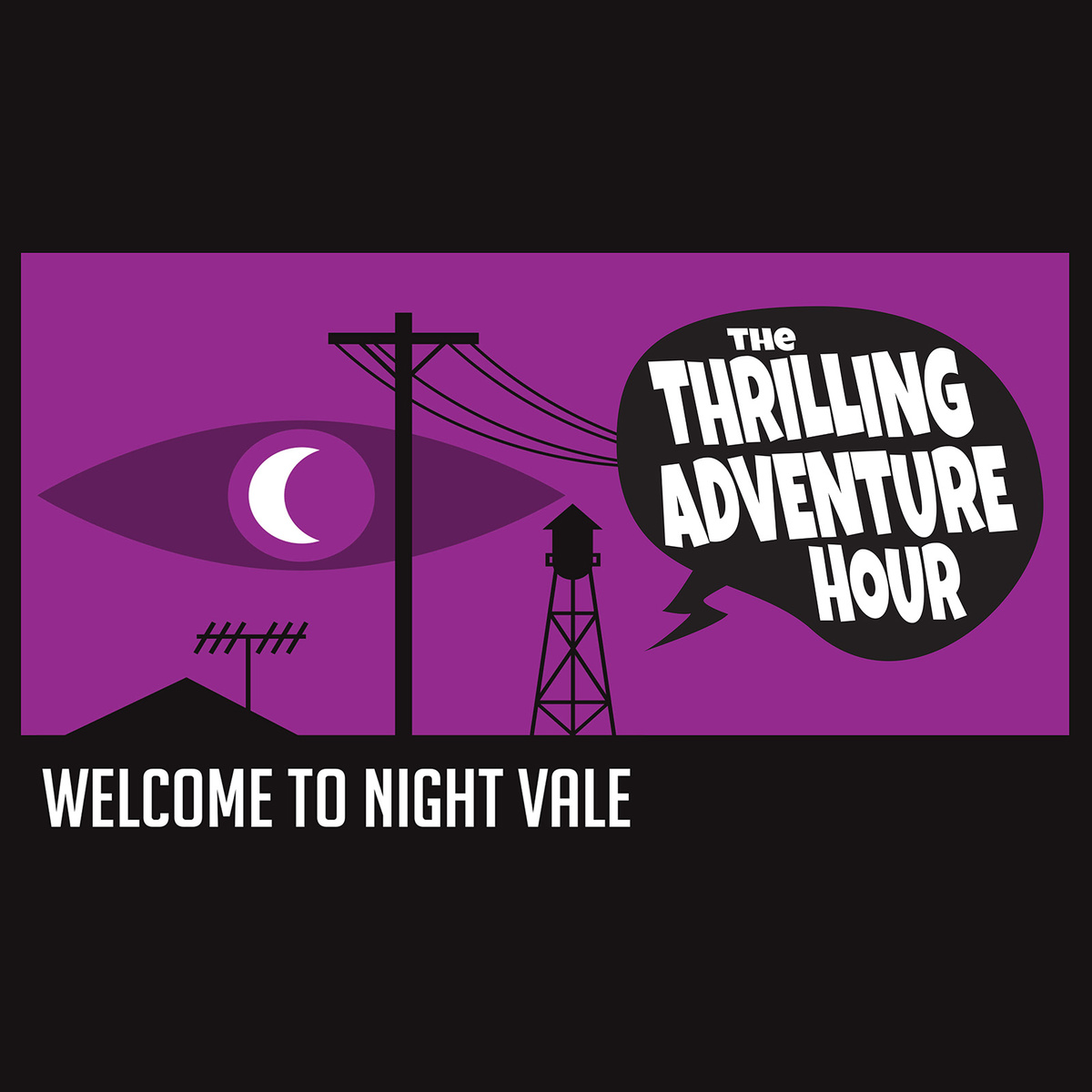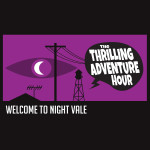by Claire Sheen
Dylan Marron, voice of Carlos on Welcome to Night Vale, star of web series Whatever This Is, creator of the YouTube series and Tumblr blog Every Single Word, and member of the New York Neofuturists, came to Yale in February for a talk called “Every Single Word: Racial Erasure in Pop Media.” His latest project was an Every Single Word live show, which was set up as an Oscars viewing party in response to #OscarsSoWhite. The ticket sales were then donated to the “Made in NY” PA training program, an organization helping low-income New Yorkers in the film industry. Dylan’s visit was sponsored by the Yale Humanist Community.
Before speaking to a crowd in Davies Auditorium, Dylan sat down with DOWN to discuss activism, pop media, and where the two collide.
Q: First, I want to congratulate you on your blog being nominated for the Shorty Awards.
A: Big stuff.
Q: Yeah, what is it like having that recognition?
A: It’s really cool. I think to be able to make something that has a social justice message, and to create a ripple in the pop sphere is very important. And we’ve seen that a lot. You know, this is not exceptional. But I do think that that is one of the most potent ways to get a message across, is through pop culture. And it’s funny because within our side of things, we see a lot of what people are doing with each other. About what is the right way to get this message across? And I feel very strongly that that pop message is very crucial to a movement. It is by far not the only thing that we need. We need the radicals, we need the revolutionaries to start the ripple. But to have the message amplified is totally important. And yeah, so to be nominated for something like the Shorty awards is a big honor. For that very reason.
Q: [For the Every Single Word live show,] you’re using the Oscars. And there’s kind of a humor to that. Do you think that’s important?
A: Yeah, totally. Fully. And it’s the same humor that, I think, made Every Single Word watchable. Which is like, there is something funny about Every Single Word. And it’s because it is funny that you start thinking about it. And really, I believe that’s how you change minds.
Q: So is accessibility the reason why humor is important?
A: Right, and humor is the same as entertainment. And it’s like: when you are having fun, you are more willing to learn something. And this can go two ways. If you look at the misogyny and violence in a lot of pop media—let’s take video games—kids don’t know that they are inhaling and absorbing misogynistic messages. But they are. And it’s the same with movies. We don’t know we are inhaling and absorbing racial stereotypes, but we are. Because we’re being entertained, and that’s what’s dangerous. Like, in watching movies, we are figuring out who we are. We are developing a sense of empathy.
Q: What is it like having this identity both as a biracial person in the media and as a queer person in the media?
A: Wow. Thanks for that question. It is—I mean, being—it’s really tough. I think because when you are just one minority, people are already obsessed with figuring you out. I mean especially because the gatekeepers are sometimes the storytellers. They have decided what is Latino enough. They’ve said, oh, this is Latino. This is what Latino looks like. This is what gay looks like. And when you are more than one, you complicate that, right? And I think especially with being biracial. I mean, the real thing I feel—I just feel like I don’t know what tribe I belong to.
And that’s how I’ve been talking about that. And I feel that, you know, that has followed me, too, professionally. I mean, am I a writer? Am I an actor? Am I an activist? And, you know, I do a monthly show at the UCB. Am I a comedian? I mean, I don’t know. Because I don’t see my reflection in that, I’m like, no, I’m not a comedian. But I’m also not an activist, because I do my activism through art. And I’m not just an actor. I write to perform things. Or write to direct. But yeah, that’s the easiest way to say it: I don’t know where my tribe is.
Do I belong to the gay community? Am I Latino enough to belong to the Latino community? And that’s so funny, because I can ask that, and there’s no questioning. And yet, if I said, am I white enough to belong to the white community? our heads would, like cock a little to the side. It’s, it’s just hard. It is a challenge to be outside of everything. And being biracial is something I’ve wrestled with since I was young, too. It’s like, because society doesn’t have a box for you, you feel like you don’t deserve a box. You feel like you don’t belong. Racially homeless.
Q: I’ve heard that same sentiment, actually, last semester. Together with the student movement, people from the different cultural centers were really mobilizing. And there were biracial students who felt like maybe they weren’t POC enough to have a say.
A: Yes. Yes. I know that fully. I know the feeling of being rejected by who you think is your own group. And this came up in a really interesting way recently in the election. When, you know, women who supported Bernie Sanders were being criticized. And that goes on within communities of color too. You know, like, “You are not a real person of color if you aren’t for this cause.” And we’re not talking about big causes that clearly—I mean, Black Lives Matter, it’s like, we’re all on that side. But in the minutia of it all: how to activate, how to organize. And you come under fire more when you are one of these people who toes the line.
Q: Does it ever take an emotional toll on you?
A: All the time, I think, in ways that I don’t really even know. Because it’s so ingrained. Yeah. Pretty frequently. Can I identify them? No. But identity formation is so crucial and so self-actualizing. It’s actually really hard for me to identify how it has manifested in me, other than the clear ways that I am aware of. Like not feeling Hispanic enough, feeling like what standards am I holding myself up to? In the end, what community do I belong to? Do I belong to any community? So it’s a deep fear of a lack of belonging.
Q: When you were growing up, seeing all these white people on TV and in media, was there ever a moment when you finally felt like you could belong in this space?
A: No, but I always dreamed of it. And fantasy always kicks in when you just really want to belong. I mean, I always loved that world. And when I saw that I had a talent for acting, and later writing, and that it was something that I felt I could work hard to hone and work on, that’s when I started feeling like maybe there was a place for me in this world. And it really was joining a sketch comedy group in college that really empowered me to be like, oh, I can create my own work. And I can create my own characters, and I can dictate the words I say. And I’m also an ensemble member of the New York Neofuturists. But in spaces like that, you’re just not even thinking about it. You’re making your own work, of course you’re gonna be on stage. And then you step into the more commercial world, the more pop world that we’re talking about. And it’s radically different here.
Q: From what I’ve noticed in sketch, and in college comedy, it seems like it’s a lot of white people, and it’s a lot of guys, and it’s a lot of straight guys. Did you think about that in your sketch group?
A: Oh yeah. I was one of the only people of color in any comedy group. There were—let me think—just taking my freshman year, I think I was one of three in all comedy groups. People of color. At all.
Q: Someone told me once that I’m one of only two Asians in a comedy group on campus. I’ve gone to shows, and I think that’s true.
A: That’s crazy. That’s crazy. And it’s interesting how this plays into the comedy world too. There’s a lot of talk about, like PC culture ruining comedy. And it’s just so—that’s another thing that makes me question what my tribe is. It’s like, well, I love comedy, and I love doing comedy, but I don’t know. It’s so interesting to hear people say that [, who have benefited from a former PC culture allowing them in. Do you know what I mean? And to speak to what you said about a largely white comedy community, it’s because that crew has been in comedy for so long. So when you see your reflection in something, when you see your reflection doing something, what that triggers in your mind, especially as your mind is forming, you say oh, I can do that. That I can do, because I see someone who looks like me doing it. And that’s why representation is so important. You know, that there could be more than just one token person that you can look to, to say okay, I’m doing this thing. If you had like, a swarm of Asian comedians that you could look to who all represented something different, clearly they wouldn’t be tokenized. Because all humans are different, so therefore, all Asian comedians would be different. And you would have more confidence. I mean, this is not assuming that you don’t, but I mean there wouldn’t be a question of it. And there’s never a question, aside from talent, for straight white guys going into comedy. There’s never that moment of but…what do I say? I don’t want to suggest that they are not working hard. Of course they work hard. But I’m saying, they’re working in a way where they never have to question if they’re allowed to do it because of who they are. And that is one of the greatest inhibitors.
Q: Have you had role models in media who you’ve felt represented your identity?
A: I mean, when I saw Ricky in My So-Called Life, that was huge. But seeing soft-spoken queer brown boys, who are not the butt of the joke? No. Like, no. I love seeing parallel groups be represented. I mean, I think Key and Peele are doing something really cool. They just nail it, talking about the very limited options Black men are given within the mainstream. And seeing Shameik Moore, as the lead of Dope. That is a new model. We just need that in every community.
Q: Are you constantly aware of your position as a role model?
A: When I meet the fans, specifically of the podcast Welcome to Night Vale, I am. Just because they tell me directly. I am aware. But people who are activists in our art have such a heavy weight to bear. Because you’re thinking about thinking about so many things at once. Is this right? Am I saying this right? Am I offending anyone? Also, honoring the story. Like, separate from activism, am I telling a good, entertaining story? So it’s not like, every moment, your mind is coursing with oh my god, how am I going to represent this character? But like, activism is in our DNA. We know how we want to represent these characters. I know how I want to represent Carlos on Welcome to Night Vale. And he is a full, 3D person who will look like my version of Carlos. So as long as I play the truth of it, and I play my truth, then I don’t have to obsess over is this the right representation? Well, it’s not the only one. I hope there are many other images of Latino men who are not like me, too.
Q: Do you feel a pressure to represent your communities well?
A: Of course. But then, it also goes back to the tribes question we were talking about, which is like, which community am I representing? I think that’s where I get really tripped up. Who am I standing in for? And I think when I meet, especially the fans of Welcome to Night Vale, especially seeing brown queer kids, and all varieties of brown—when you see someone who looks like you, there’s just a sigh of relief. You know? Ooph, yeah, like that looks like me. And then you feel like you have an avatar there. And if I’m anyone’s avatar, I’m honored by that. Incredible, incredible. It’s an honor.
Q: Do you have an end goal, something you’re searching for?
A: Sustainability. You know, doing Every Single Word has been amazing. I would like to be telling the stories, rather than just commenting on them. And I’ve been writing a lot. I’ve been auditioning for things. And that is the way to do it. But I want to—no one is just an activist. You have to be an activist through doing things. You know, like, you can’t be a career protester, right? There are so many ways to protest. Every Single Word is a way to protest. Putting together a live show for Every Single Word is a way to protest. Like yeah, it’s a live comedy show. But it’s also a lot more than that. And I hope to keep making work like that. And I hope it can be regular, and I hope it can continue being a regular job. My end goal is to entertain people enough to transmit social justice messages through my work. To change minds through entertainment, yeah.
Q: I think I’ve definitely felt that too. Last semester, when things were going on around campus, I did some art projects. I’m in a spoken word group. And I felt like I kind of had one shot to make the other students care. One shot to do something beautiful and brilliant so that they would care.
A: And we have to take that pressure off ourselves. Because you’re still a human. A growing human—not to say “you’re in college, you’re still growing.” I mean, we all are. I’m a growing human. If someone else is not going to give you that second chance, you will give yourself the second chance. Because you have to. There’s just no other choice. The work you’re doing now is not going to be nearly as good as the work you’ll be doing in ten years. And you just have to accept that. We just get better. Same with me; the work I’m doing now is not going to be nearly as good as the work I’ll be doing in ten years—so I hope. I can only hope that I will keep getting better. But yeah, I mean especially when you talk in the macro about how Hollywood works, and how if a Black woman directs a movie and it’s a box office bomb, they’ll be like, “Well, that’s it. Never letting a Black woman direct again.” And that happens in the micro too. You just have to find ways to not let that get to you. You will perform spoken word again, if you don’t get a chance from other people. So yeah, it’s exhausting work. But we gotta keep going.
Q: So what do you think is the path, on a practical level, to more representation in the media?
A: Always question. It’s to always question. If someone says, “Well, that doesn’t make sense for a Latino person to be in a fairytale,” why? Why? Says who? There’s a fire-breathing dragon—just wanna put that out there, but okay. That doesn’t make sense. Or in a fictional, mystical woods, okay. To always question, and to use that point of questioning as a trampoline for making work. And then to keep jumping higher.
Q: I’ve heard a lot of complaints about protests and about the student movement, that are like, “Why bring politics into this? Why bring politics into the names of buildings, or Halloween costumes, or frat parties?” Do you run into that same complaint?
A: Not with that wording, but yeah. Like “Oh, this isn’t racist. This is just us having a good time.” It’s like, no, but it’s everywhere. You can’t depoliticize it. Politics are everywhere. Politics of representation are everywhere, whether you like it or not. You just don’t like being inconvenienced by being alerted to it. So that’s what it is. It is the fear of what that inconvenience will do to your perception of your security.
Q: Do you think that people my age, college students, have a special role?
A: Of course, yeah. Find a way to be an activist in any medium. Activists don’t always stand somewhere holding a sign. There are many ways to stand somewhere and hold a sign. You can do it digitally. You can do it artistically. You can do it literally, you know. And this is not to knock live protests. That’s of course necessary. Especially for representation because you got the cameras there, you know. But there are other ways. And there are ways to slyly include activism. Just keep searching for those ways.


